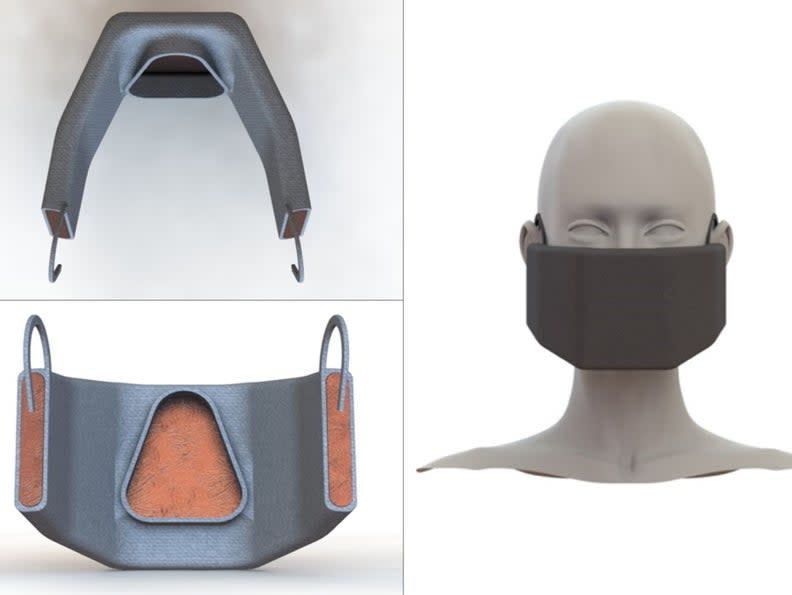MIT developing ’heated face masks’ to kill off coronavirus

Researchers are developing a new “heated face mask” that they believe could be effective at killing coronavirus and allowing wearers to breathe medically sterile air.
Engineers at the Massachusetts Institute of Technology (MIT) have submitted a patent for a prototype mask with a heated copper mesh, a news release from the university announced.
The researchers believe that the mesh in the masks will slow and inactivate any viral particles in the air.
“This is a completely new mask concept in that it doesn’t primarily block the virus. It actually lets the virus go through the mask, but slows and inactivates it,” said Michael Strano, the Carbon P Dubbs Professor of Chemical Engineering at MIT and senior author of the paper.
The research has not yet been peer-reviewed by scientific or medical experts but has been published on the preprint server arXiv.org.
According to the press release, researchers are in the process of building the prototypes and intend to begin testing them soon.
“The masks that we wear now are designed to capture some of the virus. They do offer protection, but there's no one really thinking about inactivating the virus and sterilising the air. That surprised me,” Dr Strano says.
Researchers say that the potential advantage of heated masks is that because they kill the virus, they don’t need to be decontaminated or thrown away after use.
“The vast majority of masks today function by filtration, filtering particles by size or electric charge,” Samuel Faucher, lead author and graduate student at MIT, said in the release.
“This mask relies on a different mechanism and works predominantly by thermal inactivation.”
The prototypes use a 9-volt battery to release an electric current across a 0.1-millimetre thick copper mesh, Fox News reported.
Researchers said that they found that a temperature of about 90 degrees Celsius could achieve between a thousandfold and millionfold reduction in viral particles.
The engineers say that neoprene, an insulating material, would prevent the outside of the mask from becoming too hot to wear.
“Of course, we need to be mindful of the safety and comfort of mask users,” Mr Faucher said. “The air will be cooled after viral inactivation to make the mask comfortable and safe to use.”
The authors of the paper are said to have begun exploring concepts for new types of face masks in March as the pandemic gripped the US and the need for effective personal protective equipment soared. Researchers say the masks could be useful for health care professionals.
Dr Strano added: “The prospect of being able to breathe in medically sterile air and breathe out medically sterile air, protecting the people around you and protecting yourself, is just the next step. It’s better technology.”
Read more
Store guard stabbed 27 times for asking women to wear masks
"We're working on it:" Pope's COVID advisers and the mask
Trump mocks Michigan’s Democratic governor over kidnapping plot

